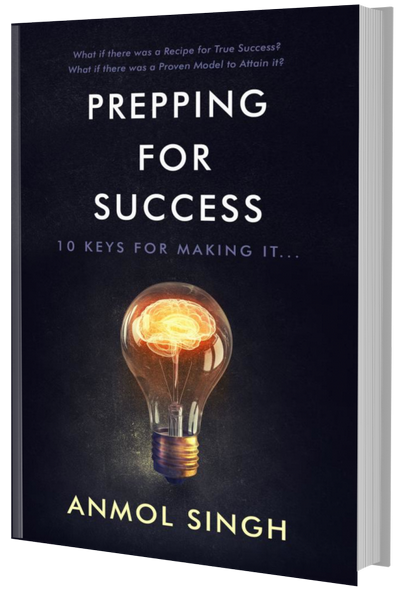Sing was kind enough to give me some excerpts from his book to share, this is 4 of 4. I don’t think anyone would take me seriously if I gave my take on this book, if anyone’s going to convince you to read this book, it’s going to be Singh himself, so I’m going to let him — make sure you read them all!
Are you acquiring the patience, self-discipline, and knowledge we’ve talked about in previous blogs? Those qualities are critically important to your success But the truth is, all the self-discipline, knowledge, and patience in the world won’t get you to the finish line. Only action can do that. Are you ready for action?
It’s such a simple concept. And yet people resist taking action on even the smallest of things. Why? Mainly, it’s the Fear Factor. Fear of what, you ask? Think about how many of these fears are getting in the way of your success every single day.
Fear of:
- Looking bad in the eyes of others
- Being rejected
- Making an irreparable mistake
- Creating even bigger problems
- And above all, fear of failure
The fear of failure is the #1 cause of failure. Think about that for a moment. You have a goal. But you never get started working toward that goal because you are so afraid you’ll never make it. It’s easier to do nothing. Well, guess what? You failed before you even started!
(If any of these ideas sound like concepts you’d like to explore further, you’ll find an in-depth discussion in my new book, Prepping for Success, available on Amazon on (date).
Here’s the big takeaway: your inbred fear of failure demonstrates itself in your life every single day. It’s called overthinking or “analysis paralysis.” Do you notice that you continually have difficulty making the decisions that will move you toward the success you seek? You’re getting bogged down in the swamp of decision fatigue. It’s exhausting to keep researching, analyzing, and thinking and never arriving at a conclusion. Not only does this decision fatigue inhibit your ability to clearly assess your career and business decisions, it also makes you more likely to sink into bad personal habits, like eating unhealthy foods, skipping the gym, and scanning Facebook or the Internet news feed rather than working on a pet project or learning a new skill. In other words, over-analyzing a decision makes it much more difficult to make high-quality, long-term choices later on.
If you know that analysis paralysis, overthinking your decisions, is an issue for you, consider the impact this tendency is having on your overall success and happiness.
- Overthinking impairs your performance. You’re putting too much time and energy into analysis. There’s no room left for action.
- Overthinking stifles creativity. Creativity demands freedom. If you’re stuck in analysis, you’re not free.
- Overthinkers are less happy. Of course they are. When you consider the lack of creativity, the information overload, the poor performance we’ve described, it’s not a happy picture for the compulsive analyzer.
People think it’s intelligence that separates the successful from the unsuccessful. However, that is not the case. Action is what separates them, and this is easy to prove. Let’s pretend I have an IQ of 100. Can anyone have 10 times my IQ ? History has shown the highest ever recorded IQ to be around the 240 range. So that proves it’s impossible for anyone to have ten times my IQ or even five times. So how do some people achieve ten times the success that others have? How do some people make ten times as much money as others? One simple reason: the leaders of this world, the successful people of this world TAKE ACTION ! Are you ready?
This was an excerpt from the Book Prepping For Success: 10 Keys for Making it in Life by Anmol Singh, Learn more about the book and get a Copy at www.Preppingforsuccess.com/book




